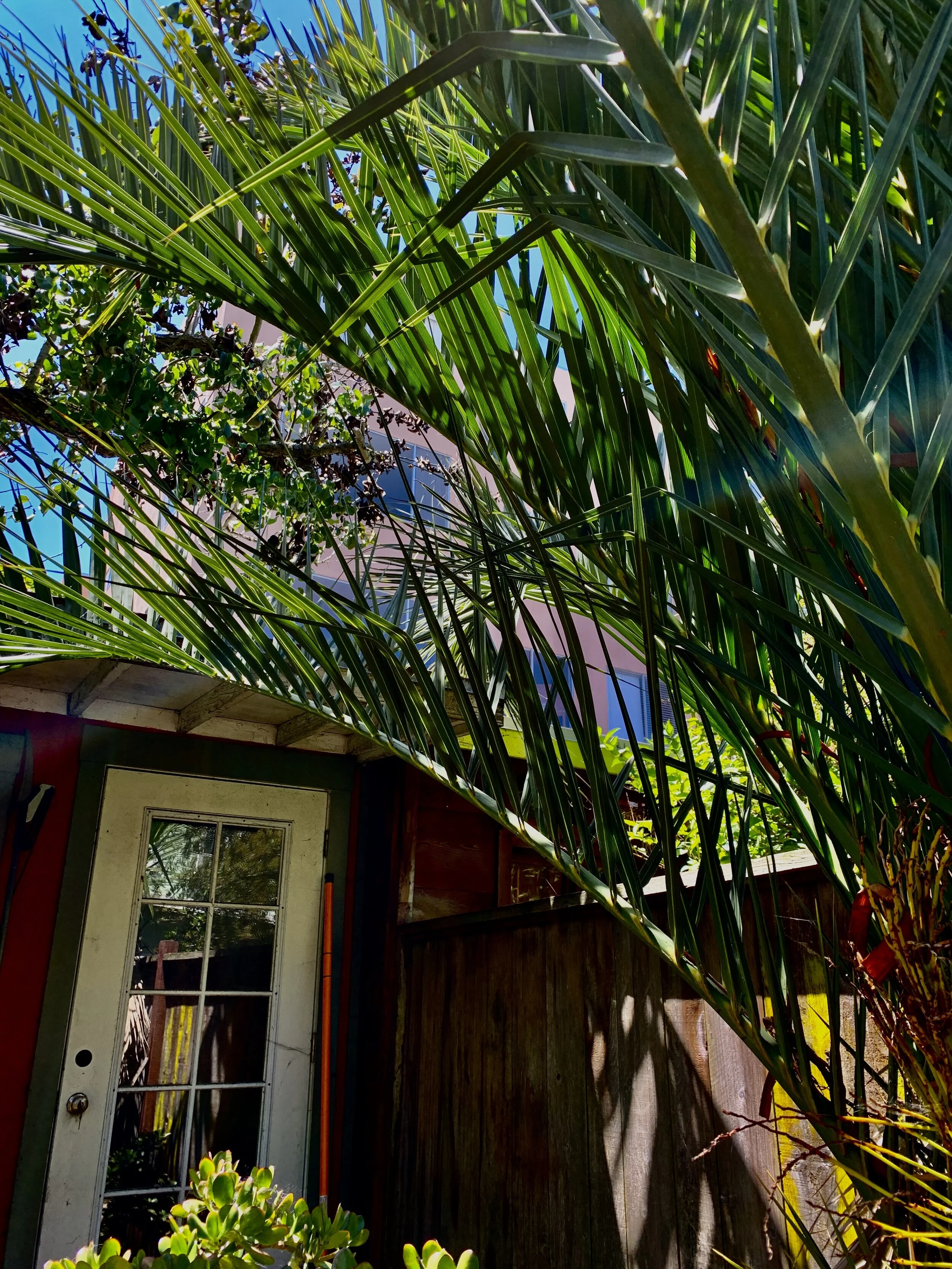Shelter in Place, San Francisco, California
July 2, 2020: What Will Happen?
This is our shed. We thought for a small minute about making it a studio, but it quickly became prime storage for a house that has neither basement nor attic, hiding out of sight all the things we might, someday, use or cannot part with yet. The shed sits in the shadow of a hideous, peach-colored four-story apartment building that rises from beyond our back fence. Unfortunately, it is the apartments we see from our house, not the shed. This week we’re watching two units on the second floor being gutted and restored after sitting vacant for at least six months. I wonder if the improvements will make them more desirable or - after the changes the pandemic is driving - prove a waste of time and money. Will there be a market for them by the time they’re done?
Rents have been sky-high for years now, and were still rising before the pandemic hit. It remains a mystery how anybody - much less a young working person of modest means - could afford a place of their own in this city. In fact, they don’t. Most get multiple roommates to share the costs of a market gone berserk or they move away and commute two hours to their jobs. And still there is a shortage. But will that be the case when the pandemic is over? Several large tech companies, include FaceBook, have announced that they will require/allow a large percentage of their employees to work from home permanently. They’ve learned, in the past three months, how to make it work. So that begs the question: if you can telework from anywhere, why would you pay $3-6000/month to rent a small place in San Francisco, when you can get a house (or two) without roommates for the same price someplace else? And what will the anticipated grand exodus of technology companies and workers do to the city’s housing market and to the rest of the businesses that stay behind? What happens when all the small businesses go belly up and more people lose their jobs? Already the SF Chronicle is reporting a record number of people abandoning their apartments and their leases either to scoop up suddenly falling rentals (down 10% already) elsewhere in the city or to move completely out of town.
Housing in San Francisco is wacky under the best of times, and everybody has different ways of coping with the mix of high property values and renters’ rights laws that make being a landlord challenging. Just within our backyard world we have a three-plex that has remained empty for twenty years (the owner’s choice, it seems), an illegal small mother-in-law apartment rented out to students, a tiny house divided by the landlord so that renters can sublet an even tinier first floor, and our own house which is legally a duplex, but which we occupy entirely ourselves. And that’s just the ones I know about. So listening this morning to the hammering and sawing going on beyond our shed and fence, I circle back around: how will the changing economic and workforce landscape affect our little world? What will happen to our city?


